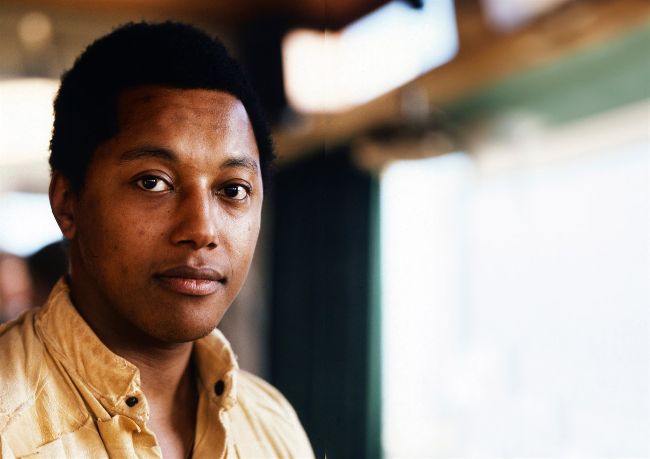ONE FROM THE HEART
Killer grooves and stark, emotional songs have turned LABI SIFFRE's '70s albums into cratedigger gold-dust. Failure to fit a mould clapped a ceiling on his success. And yet, as he concedes, stardom would have stirred unwelcome scrutiny in unenlightened times. "I'm gay, black, an atheist, and an artist," he tells TOM DOYLE. "So, I became wary."

Something inside: Labi Siffre in Germany, 1979.
United Archives/Getty Images
JUNE 6, 1973, AND THREE British pop stars find themselves staying in the same hotel, the Hallam Tower in Sheffield, on the same day. David Bowie is in town to play two shows with the Spiders From Mars at the City Hall on the Ziggy Stardust tour. Lulu, at the time a prime time TV star and household name, encounters the cocaine-withered Bowie in the lobby and is shocked by how “emaciated” he looks. Still, before the night is out, they’ll have begun a brief affair and hatched a plan to record together.
Earlier that afternoon, the phone had rung in the room at the Hallam Tower occupied by Labi Siffre, a 27-year-old west London singer-songwriter with a handful of hits.
“I got the cold call from David,” he recalls today. “He said, ‘Oh, I’ve heard you’re in town. Come on up.’” Bowie at this point was very much in thrall to the random creativity of William Burroughs’ cut-up technique to help him create new lyrics. “We spent the afternoon doing cut-ups, sitting on the floor with cups of tea, and sandwiches with the crusts cut off,” Siffre laughs. “It was totally un-rock’n’roll.”
David Bowie and Labi Siffre, on the face of it, couldn’t have seemed more different: the drugged-out, glammed-up weirdo and the slightly cosy acoustic balladeer regularly seen, by something in the region of 15 million viewers, guesting on Cliff Richard’s BBC1 television show.
But Siffre was far from the MOR light entertainer of popular perception, being a black, gay, forward-thinking individual who as a teenager had set out to become an “artist philosopher” before veering into music.
“I don’t really like describing myself as shy,” he offers. “But at a very early age, I became wary of people. I’m gay, black, an atheist, and an artist. So, I became wary.”
Unsurprisingly, then, mainstream fame as a singersongwriter perched with a guitar on a stool on Saturday evening telly made Labi Siffre uneasy.
“At that time, if you were black, you had to be ethnic,” he points out. “If you were gay, you had to be camp. And I was neither ethnic nor camp. I knew I was totally out of place. Although, of course, it ended up being, no, I wasn’t totally out of place.”
TODAY, THE 78-YEAR-OLD LABI Siffre sits in the Champagne Bar in the atrium of London’s Landmark Hotel, sipping a double espresso. Dapper in dark blue suit, white open-necked shirt and oval glasses, he’s in town to promote reissues of his ’70s recordings, one of which – his exquisite 1972 single, Crying, Laughing, Loving, Lying – beguiled cinemagoers last year as the keynote song in the Paul Giamatti-starring movie The Holdovers. It’s prompted a wider appreciation of his catalogue, yet not so much by Siffre himself, who claims he almost never plays his old records.